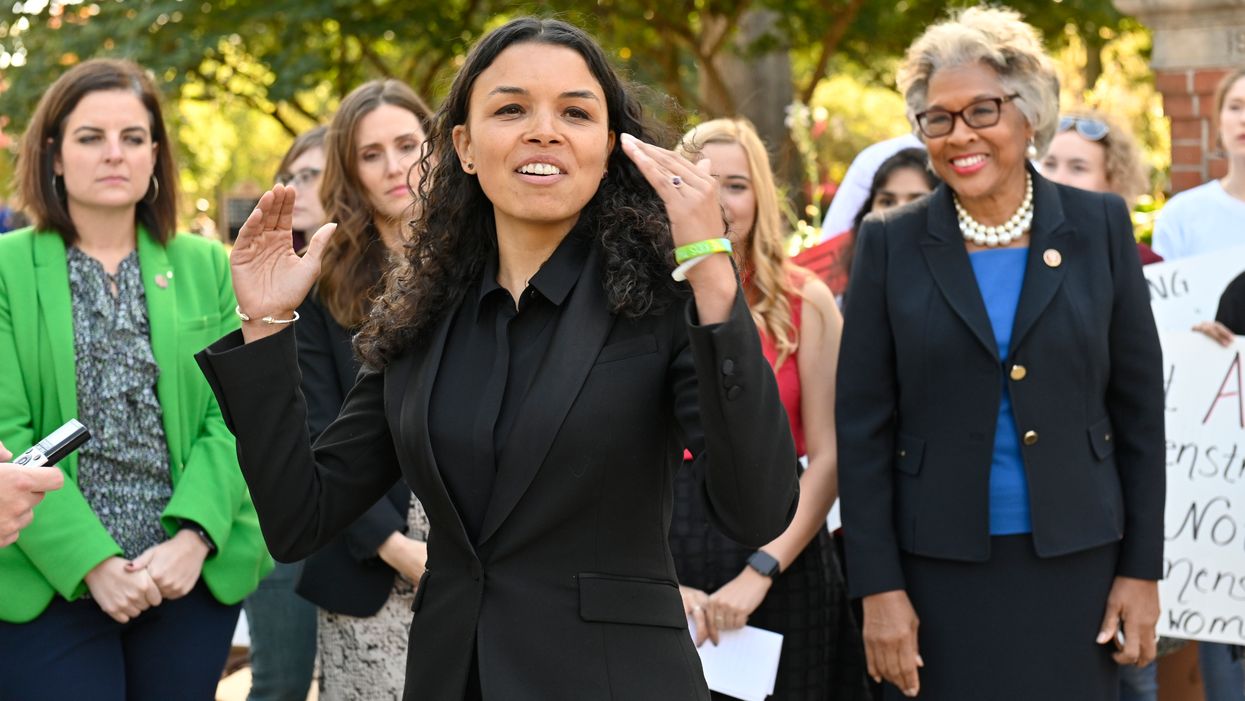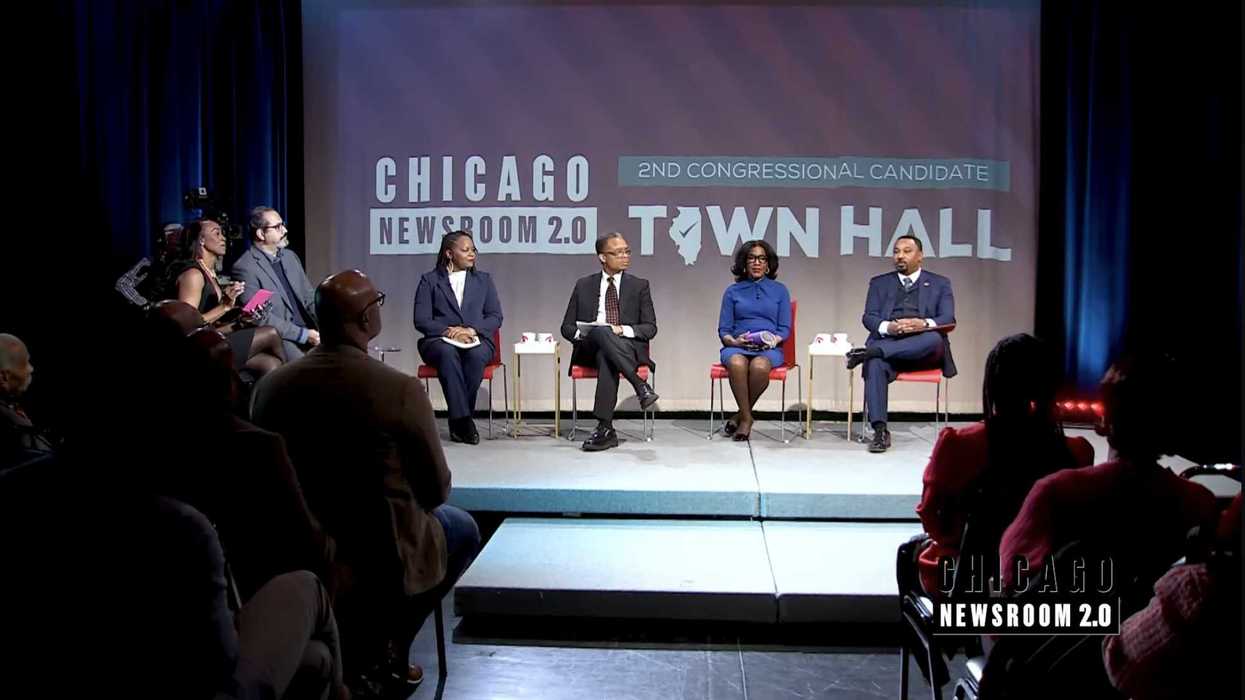Nineteen states have postponed or canceled their primary elections. To many Americans, the idea that states might cancel or postpone their primaries as a response to the coronavirus pandemic may sound undemocratic.
Whenever election laws are changed, there is reason to worry one party or faction will benefit. While much of the current coverage has focused on presidential primaries, as someone who studies campaigns and elections I believe the real consequences of delayed primaries will be felt in the House and Senate.
Most states adopted the direct primary for non-presidential candidates in the early 20th century. In a direct primary, a single election is held to choose the party's nominee — unlike a presidential primary, an election to choose delegates who then choose the nominee. Today, direct primaries are referred to as "state primaries." Some are held on the same day as the presidential primary, but many are not.
Holding primaries during the early weeks of the Covid-19 outbreak would have been a problem for many reasons and — in the case of Wisconsin, which did hold its presidential primary on schedule in April — may have exposed many to the virus.
But moving state primaries later in the year may insulate congressional incumbents of both parties from challengers — and tamp down a progressive insurgency within the Democratic Party.
There are a variety of folk theories about the effects of election timing, which may explain people's concerns about the potentially undemocratic effects of postponing primaries.
Yet states are constantly tinkering with their primary dates. During the past two decades, legislation has been introduced in 31 states to change the dates of their state primaries.
It has long been believed that later primaries — and, accordingly, shorter general election campaigns — reduce the cost of campaigning. Some say that later primaries harm nominees in the general election, because parties have less time to resolve conflicts before the general election.
Others argue that later primaries limit the "buyer's remorse" that may set in if a candidate wins the nomination but is ultimately shown to be a problematic general election candidate. And some hypothesize that voter turnout is affected by the season — voters may not be paying attention to elections in the spring, or they may travel during the summer.
There is little evidence to back these claims. Political scientist Vin Moscardelli and I recently analyzed the effect of state primary dates on competitiveness, candidate spending and voter turnout. We found no measurable evidence that changing the primary date affects competitiveness or candidate spending. We did find a slight effect on turnout: Voter turnout goes down in the summer but up again in the fall.
Yet anecdotes are often more powerful than facts. In Massachusetts, for example, it is easy to find Democrats who insist the party's frequent losses in gubernatorial races are caused by the state's September primary, which they believe creates divisions among Democrats that have helped moderate Republicans win in November.
Most theories, then, suggest there are benefits for parties, and perhaps for voters, to holding primaries later in the year.
The candidates who stand to benefit most from changing primary dates, however, may be the incumbents — regardless of party.
For congressional candidates, the biggest consequence of the pandemic is there has been very little fundraising or campaigning since March. When campaigning becomes difficult or funds become scarce, name recognition becomes more important. It will be hard for unknown candidates to generate the grassroots support or online buzz that has propelled past insurgent candidates of both parties. Incumbents rarely lose their primaries, and this year they will be more secure than usual.
This is a particular issue for the left wing of the Democratic Party. Some national progressive organizations have sought to capitalize on the success of Alexandria Ocasio-Cortez of New York and Ayanna Pressley of Massachusetts, who successfully challenged older, more conventional incumbent House Democrats in 2018. These groups will be boosting primary challengers to some mainstream Democrats in House races again this year, and in some state legislative races as well.
These efforts will be complicated by the new obstacles to grassroots organizing and fundraising. It's hard to raise money or knock on doors during a pandemic, and it's harder still if the campaign season unexpectedly grows a month or two longer than you had anticipated.
Last month's Democratic primary in Ohio's 3rd District — a majority-minority House district centered in Columbus — may be the clearest example. There, incumbent Joyce Beatty was facing a strong challenge from community activist Morgan Harper. But Harper's fundraising and spending were based on the expectation the primary would happen on March 17. When it was moved to April 28, Harper found it difficult to maintain momentum. She ended up with just 32 percent of the vote.
It is impossible to know whether the election would have gone differently had it been in March, but the size of her loss surprised many observers.
Several other candidates are in a similar position. Among states that moved their primaries, Pennsylvania has potentially competitive challenges to incumbent legislators in both the GOP and Democratic parties, two House Democrats face potentially competitive Democratic primaries in New Jersey and Indiana has a competitive Democratic primary for an open House seat.
The insurgent candidates in these races will have more time to retool their campaigns than Harper did, but it is hard to see how non-incumbents will be able to run campaigns remotely like what they had planned.
We will never know what the 2020 primaries would have been like without the pandemic, and there are many good reasons for states to move their elections. Whatever the merits of making elections later, and safer, these changes will have lasting political consequences.
This article is republished from The Conversation under a Creative Commons license. Click here to read the original article.
![]()





















 Mayor Ravi Bhalla. Photo courtesy of the City of Hoboken
Mayor Ravi Bhalla. Photo courtesy of the City of Hoboken Washington Street rain garden. Photo courtesy of the City of Hoboken
Washington Street rain garden. Photo courtesy of the City of Hoboken